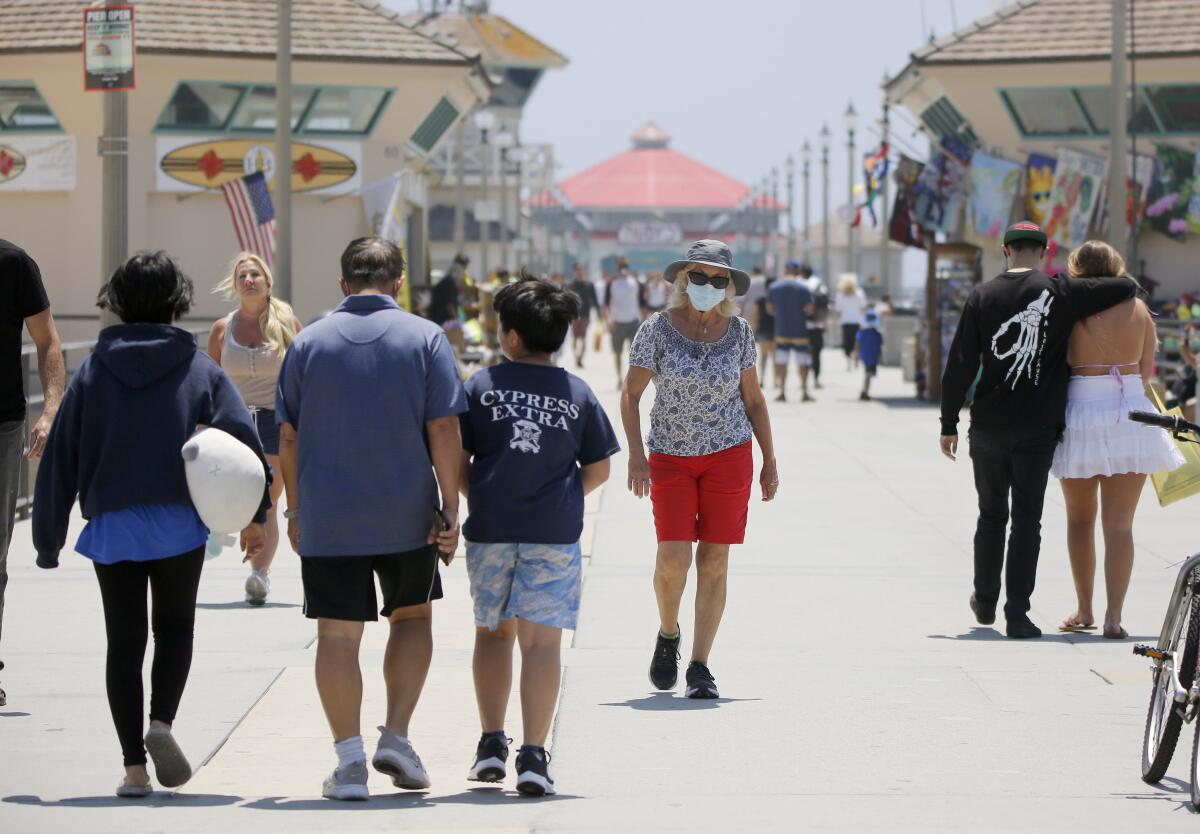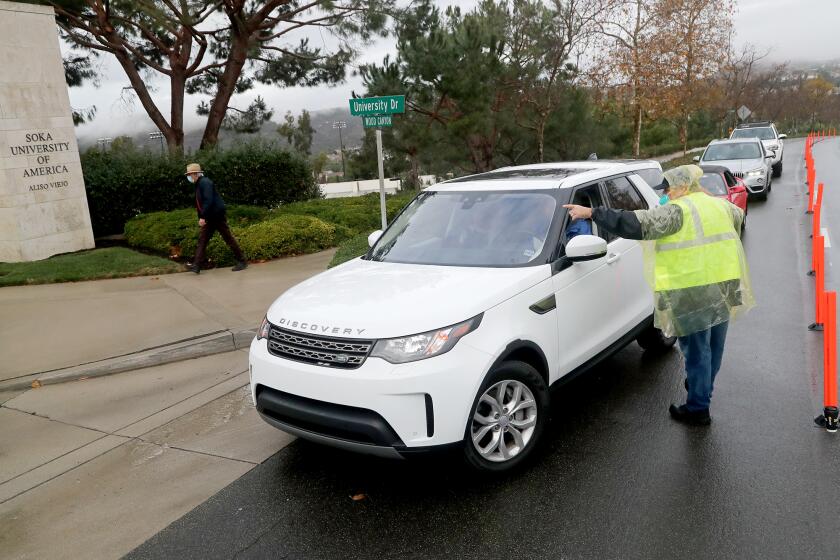UC Irvine Health opens program to treat lingering symptoms of COVID-19

Margaret Goldstein is still feeling the effects of COVID-19 five months after her diagnosis.
Lung damage, fatigue and a high heart rate are lingering symptoms for the Tustin resident, who declined to disclose her age.
“My problem really is my heart rate gets elevated very quickly and then I get out of breath with simple activities,” Goldstein said. “I think the first time I noticed it, I was just making the bed. My heart started pounding ... My heart rate was so high, it was like 160 just from the effort of changing the sheets on the bed.”
Goldstein is one of many who suffer from “long hauler syndrome,” which includes a host of symptoms like fatigue, shortness of breath, brain fog, memory loss, difficulty concentrating, joint pain, chest pain, anxiety and depression.
It affects between 10% to 30% of people who had COVID-19.
Starting a few weeks ago, Goldstein has been getting help from a new UC Irvine Health program that addresses the long-term impacts of COVID-19. The outpatient program, which had a soft open on April 1, has offices in Tustin and Costa Mesa.
“If we think about sheer numbers, 30 million Americans have been diagnosed with COVID-19, and so if we think 10% to 30% of these patients are going to develop chronic symptoms, that’s going to be a staggering amount of patients that are going to develop these debilitating symptoms,” said Dr. Long-Co Nguyen, who oversees the program.
Researchers around the country are working to better understand long hauler syndrome. Not much is currently known.
The National Institutes of Health recently launched an initiative to study the syndrome, also known as “long COVID.”
Nguyen said that they don’t know the cause of long hauler yet, but one theory is that the virus causes a person’s immune system to have an inflammatory response that persists for weeks or months after the virus is gone. She said researchers have not yet identified factors that could increase the likelihood of developing long hauler syndrome.
Someone who is suffering with long hauler may have symptoms left over from COVID-19, but they may also have new symptoms that they didn’t have while they had the virus.
“So far it seems like there’s no one that’s not at risk for developing long COVID,” Nguyen said.
UC Irvine’s isn’t the only program in Orange County. St. Jude Medical Center and the Children’s Hospital of Orange County also have long hauler syndrome programs.
Nguyen said it’s important that the medical community is now focusing on helping people with recovery from COVID-19.
“I think that we as a medical community have been so laser-focused on treating acute COVID and trying to figure out exactly how to care for them, but we haven’t really focused on the recovery,” Nguyen said.
The UC Irvine program is primary care-based. Nguyen said the goal is to evaluate each symptom systematically, then patients can be referred to a number of specialists to tailor the care to each symptom.
Traffic at the Aliso Viejo vaccination site came to a halt Sunday after a driver crashed into a tent and several portable restrooms during what may have been an accidental acceleration.
To address the common long hauler symptom of fatigue, UC Irvine has a rehabilitation program to help rebuild a patient’s endurance levels to where they were pre-COVID.
UC Irvine also has a psychologist on the team to help patients with post-traumatic stress disorder, anxiety or depression.
Goldstein said she’s been searching for a while for a program like the one provided by UC Irvine.
She spoke with one of the doctors in the program and was referred for cardiac therapy and physical conditioning, as well as a speech therapist to help with her brain fog and concentration issues.
In December, doctors found ground glass opacities on her lungs, which are gray areas that indicate that the body has had an infection. Goldstein will have a CT scan next month to see if the issue has improved.
While Goldstein’s heart rate has been treated with medication, she has continued to feel that her focus and fatigue issues were not being medically addressed. She said she’s excited that her doctor seems to have some ways to help those symptoms improve.
“As far as my tiredness goes, it wasn’t being directly addressed,” Goldstein said. “I was just surprised when [the doctor] had a couple of other things that we can do now to help speed my recovery.”
Nguyen said the UC Irvine program is currently seeing about 30 patients, but that will grow.
The program may also expand to other clinic sites to serve a wider variety of patients across Orange County.
“If the studies are correct, this is going to have a huge impact to our healthcare system because of these long chronic conditions and how debilitating it can be,” Nguyen said. “We expect that there should be, unfortunately, a huge influx of patients.”
All the latest on Orange County from Orange County.
Get our free TimesOC newsletter.
You may occasionally receive promotional content from the Daily Pilot.





